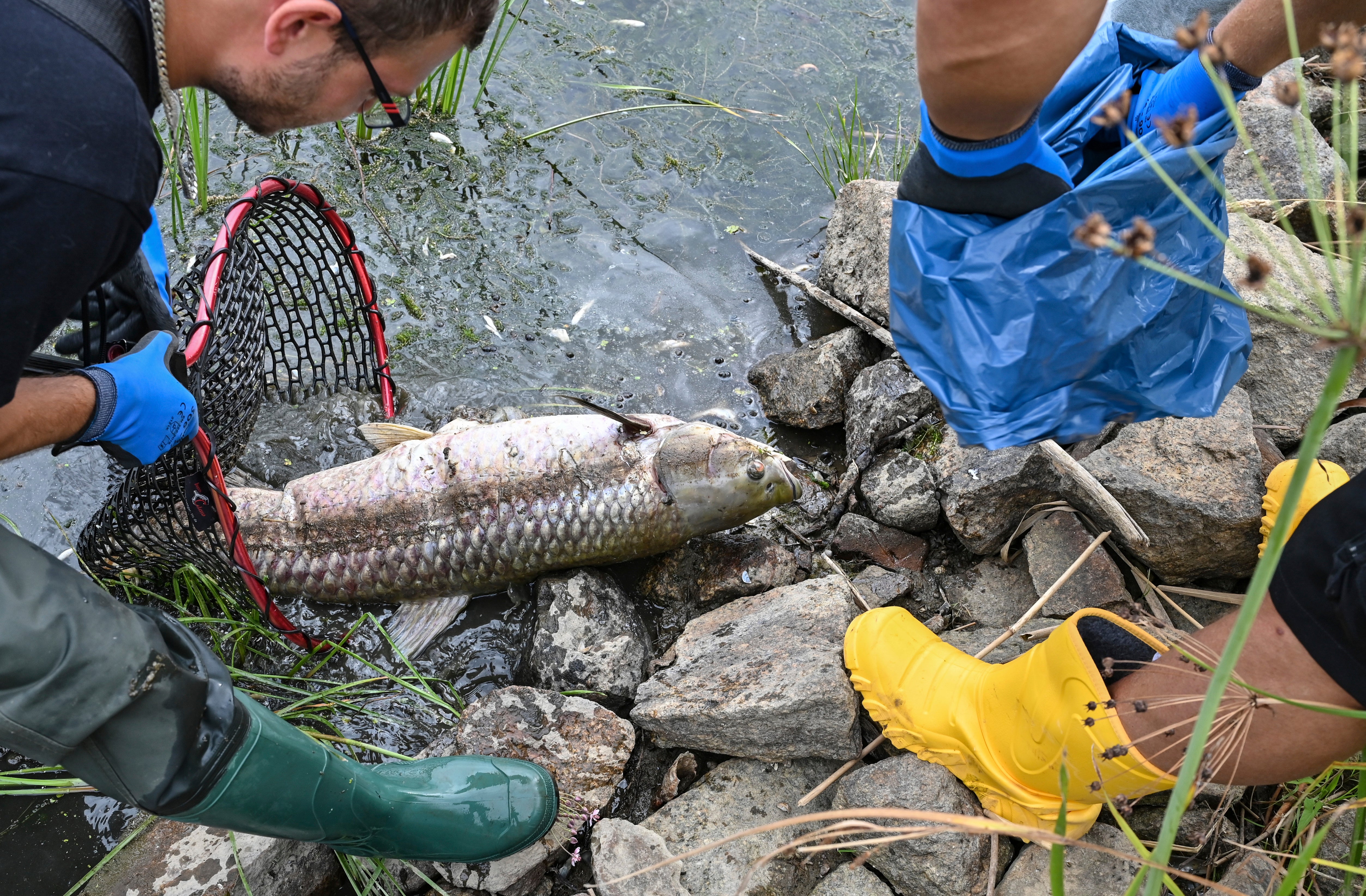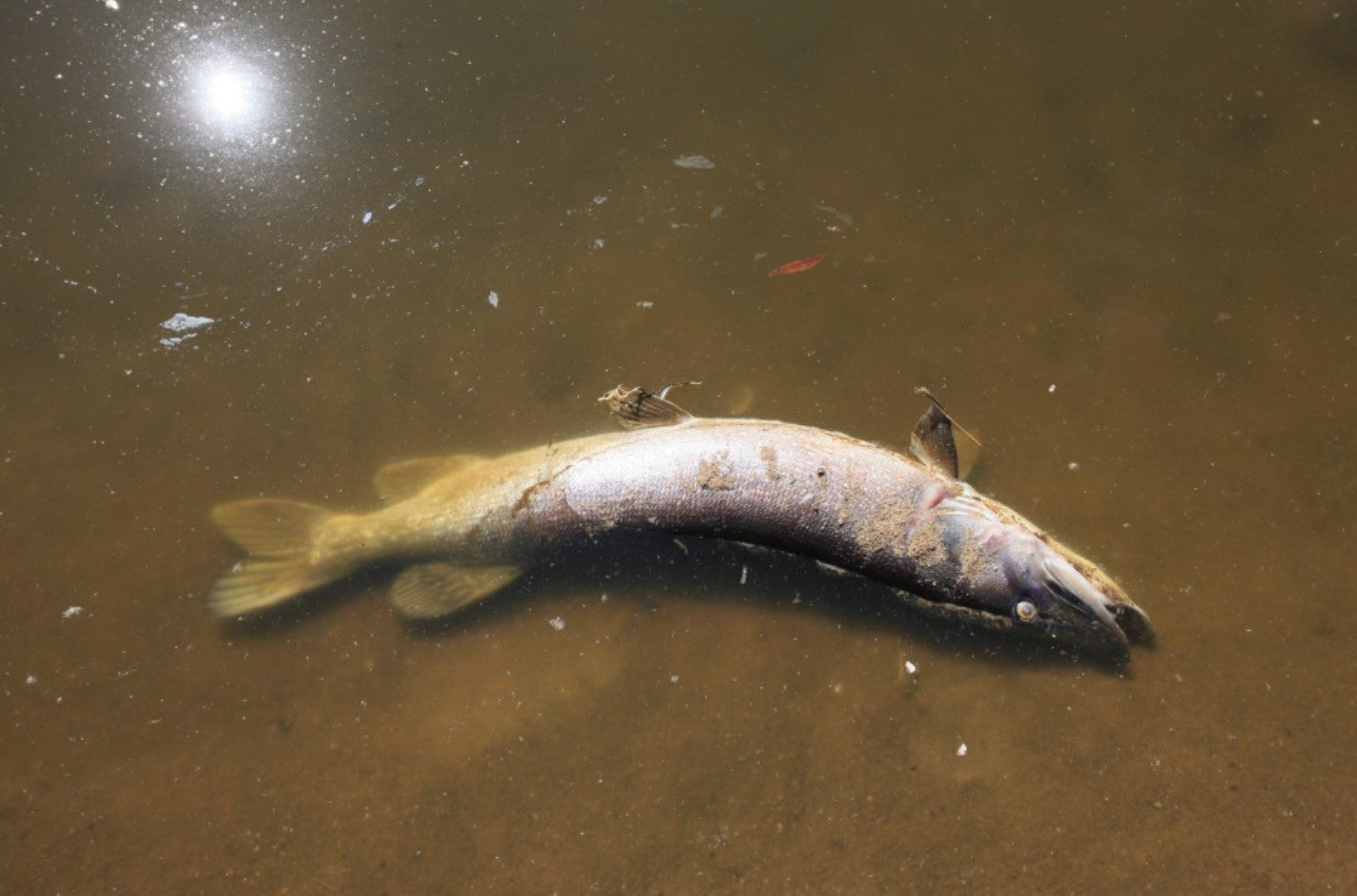Oder River fish die-off: Germany warns Poland over mystery deaths of tonnes of fish
Information from Poland has come ‘in dribs and drabs’ or ‘not at all,’ a German official said

Germany has issued a warning to Poland over the mystery deaths of tonnes of fish in the Oder River that runs along the shared border.
Steffi Lemke, the German environment minister, has announced that the two countries have created a task force of experts to probe the possible reasons for the ecological disaster.
Ten tonnes of fish were removed from the river last week, and people have been advised to not touch the water over fears that it could be toxic.
The river runs through part of the Czech Republic, and along the border of Germany and Poland into the Baltic Sea.
On Monday, a day after meeting her Polish counterpart, Ms Lemke said: “There would be a massive loss of confidence, especially among the Polish population, but probably also among us, if this (investigation) did not succeed.”
Dietmar Woidke, the state governor of Brandenburg, which borders Poland along the Oder River, had criticized Polish authorities for what he said was a lack of information about the mass fish die-off.
He claimed that the information received by Germany had come only “in dribs and drabs” or “not at all”.

Mr Woidke added that “this must be dealt with urgently in the coming months,” German news agency dpa reported on Monday.
The German and Polish governments have assumed the die-off was caused by an industrial toxic chemical spillage.
Poland has offered a reward of one million złoty (about £180,000) to anyone who can “help find those responsible for this environmental disaster”.
Last week, officials in Germany reported that scientists had discovered a high concentration of mercury in water samples but Polish officials rejected this claim over the weekend.
Lab results provided by Polish scientists have shown elevated salt levels in the water but no other toxic substances, Polish environment minister Anna Moskwa tweeted.
She said: “The state veterinary institute has completed the testing of fish for the presence of heavy metals. [It] ruled out heavy metals as the cause of the fish deaths.”

Brandenburg state environment minister Axel Vogel had said that “it may take several more days until we have checked through all the substances that we consider possible.”
There is probably more than one cause for the fish die-off, Mr Vogel also said, adding that the current drought and low water levels are almost certainly also to blame for damaging the river’s entire ecosystem.
“That’s why we don’t think we have a disaster that can be solved within half a year by repopulating with fish,” he said.
Karina Dörk, a district administrator of Germany’s Uckermark region, told the Tagesspiegel newspaper: “We have to see how the bird population develops and what will happen to the racoons and otters.
“It is a catastrophe that will stay with us for years.”
According to the Polish interior ministry in Warsaw, about 2,000 police officers, 300 firefighters and 200 soldiers had been deployed to help remove animal carcasses out of the water over the past few days.
Polish and German environmental ministers have announced that they will use floating oil barriers to stop the dead fish drifting further across the Szczecin Lagoon, from where the river flows into the Baltic Sea’s Bay of Pomerania.
On Friday, Poland’s head of government Mateusz Morawiecki fired Przemyslaw Daca – the CEO of Polish Waters, the state-owned company in charge of water management, as well as Michał Mistrzak – the head of the environmental protection inspectorate – in response to their handling of the fish die-off.
The die-off was first reported by fishermen in western Poland, near Wrocław, on 26 July – but German officials said they were not informed of the problem downstream until the second week of August.





Join our commenting forum
Join thought-provoking conversations, follow other Independent readers and see their replies
Comments